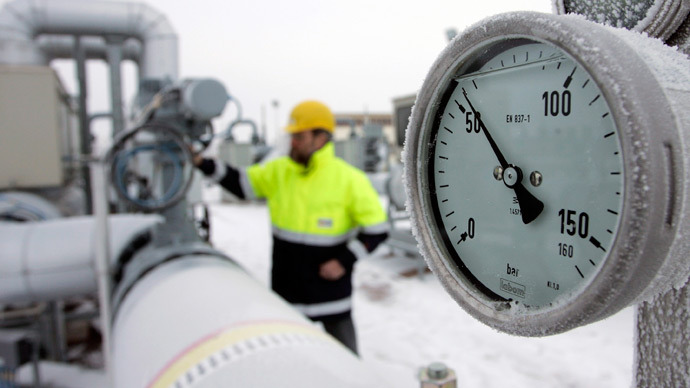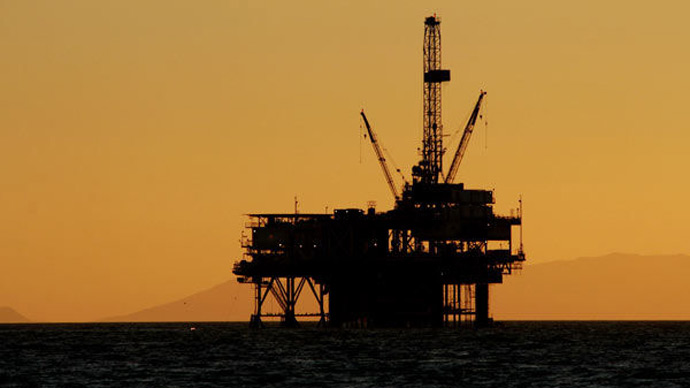Cyprus and the emerging Mediterranean gas wars

The bizarre drama currently playing out over a Cyprus “bailout/bail-in” has another entire dimension. That is a behind-the-scenes battle for control of the expanding EU natural gas market over the coming decades.
For more than a century a major background factor in numerous
wars across the globe has been the control of oil. Now, with
governments across Europe trying to lower their “carbon
footprints,” gas and wars over control of gas are emerging.
The bizarre conflict over Cyprus and Greece, as well as Syria, have more than a little to do with the new gas wars geopolitics.
In December 2011, Texas’ Noble Energy, found a field offshore Cyprus estimated to hold at least 7 tcf of natural gas. Noble Energy found huge gas reserves offshore Israel in 2010, giving Israel for the first time the prospect of becoming a major gas player too. Now the plot thickens.

Qatar, a major backer of the toppling of the Assad regime in
Syria has a vested interest there related to gas. Qatar has bid to
become the world’s premier LNG gas exporter. Its North Field is
contiguous to Iran’s South Pars gas field in the middle of the
Persian Gulf. Qatar at the moment is backed by Turkey against
Assad’s Syrian regime.
Now, a major motivation to both want Assad off the map, and
chaos in Syria might just be that in July 2011, Syria, Iran
and Iraq signed a $10 billion agreement for a gas pipeline from
Iran’s Port Assalouyeh near South Pars to Damascus, Syria via Iraq.
Iran plans to extend the pipeline from Damascus to Lebanon’s
Mediterranean port where it would be delivered to EU
markets.
Adding to Qatar’s determination to destroy the Syria-Iran-Iraq
gas cooperation is the discovery in August 2011 by Syrian
exploration companies of a huge new gas field near the border with
Lebanon and at Tartus on the Syrian Mediterranean. Any export
of Syrian or Iranian gas to the EU would go through the
Russian-tied port of Tartus.
According to informed Algerian sources, the new Syrian gas
discoveries, are believed to equal or exceed those of
Qatar.
The Iran-Iraq-Syria gas pipeline to the EU would be a de facto
Shi’ite pipeline from Shi’ite Iran via Shi’ite-majority Iraq onto
Shi’ite-friendly Alawite Al-Assad’s Syria. No surprise that Qatar
backs an anti-Shi’ite Muslim Brotherhood solution for Syria
Qatar-friendly. Sunni Salafist Qatar hosts the Brotherhood
presently, as well as the US military and the British. Interesting
combination.
Now, enter Israel as a new major gas player. Russia, the steadfast backer of Assad in Syria and defender of Russian naval rights at Syria’s Tartus port, has weighed in on the side of…Israel. Nothing personal, just business, geopolitical energy business. Tamar natural gas field off the coast of Israel is expected to begin yielding gas for Israel’s use in 2013. And Noble in late 2010 found an enormous natural gas field, Leviathan, offshore of Israel in the Levantine Basin.
On February 26, Russia’s Gazprom signed a 20-year deal with Levant LNG Marketing Corp. to exclusively buy liquefied natural gas (LNG) from Israel’s offshore Tamar field also in the Mediterranean off the coast of Haifa. Gazprom has reportedly during the crisis also offered Cyprus to develop its gas reserves. Cyprus, reeling from the results of the bank crisis, badly needs a strong partner to develop its new-found gas wealth. That can’t happen unless they have a strong partner to face up to Turkey who claims rights over Turkish Cyprus waters. Gazprom has huge leverage over Turkey as supplier of 40% of Turkish gas for her industry. Moscow and Gazprom may yet emerge the net gainer from these hidden Mediterranean gas wars.

The statements, views and opinions expressed in this column are solely those of the author and do not necessarily represent those of RT.
The statements, views and opinions expressed in this column are solely those of the author and do not necessarily represent those of RT.













